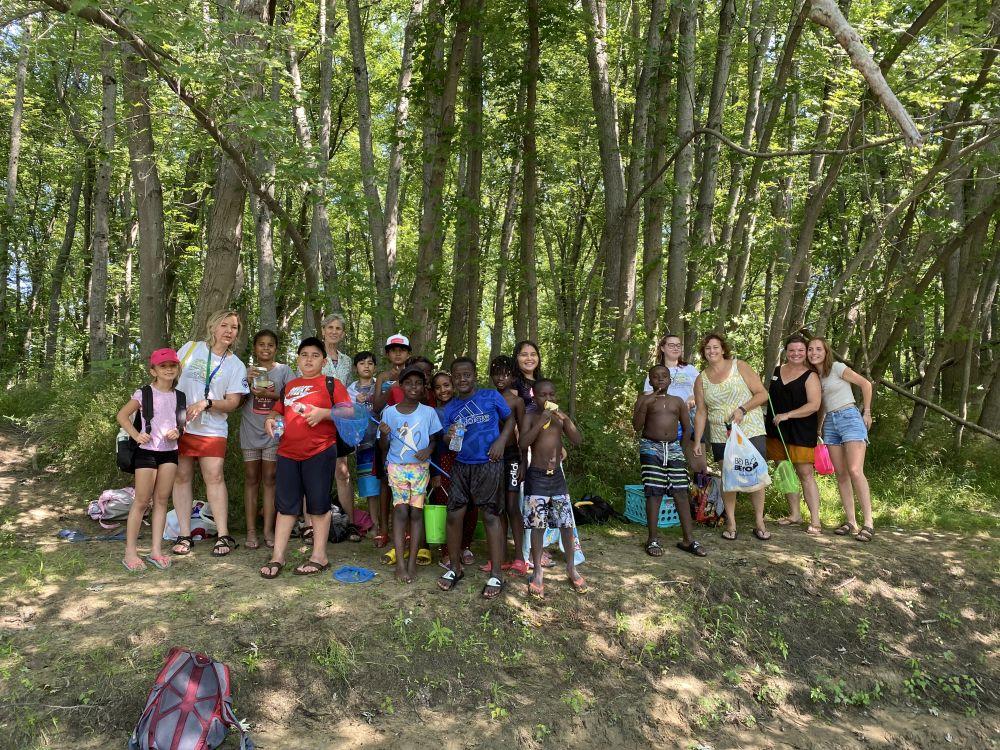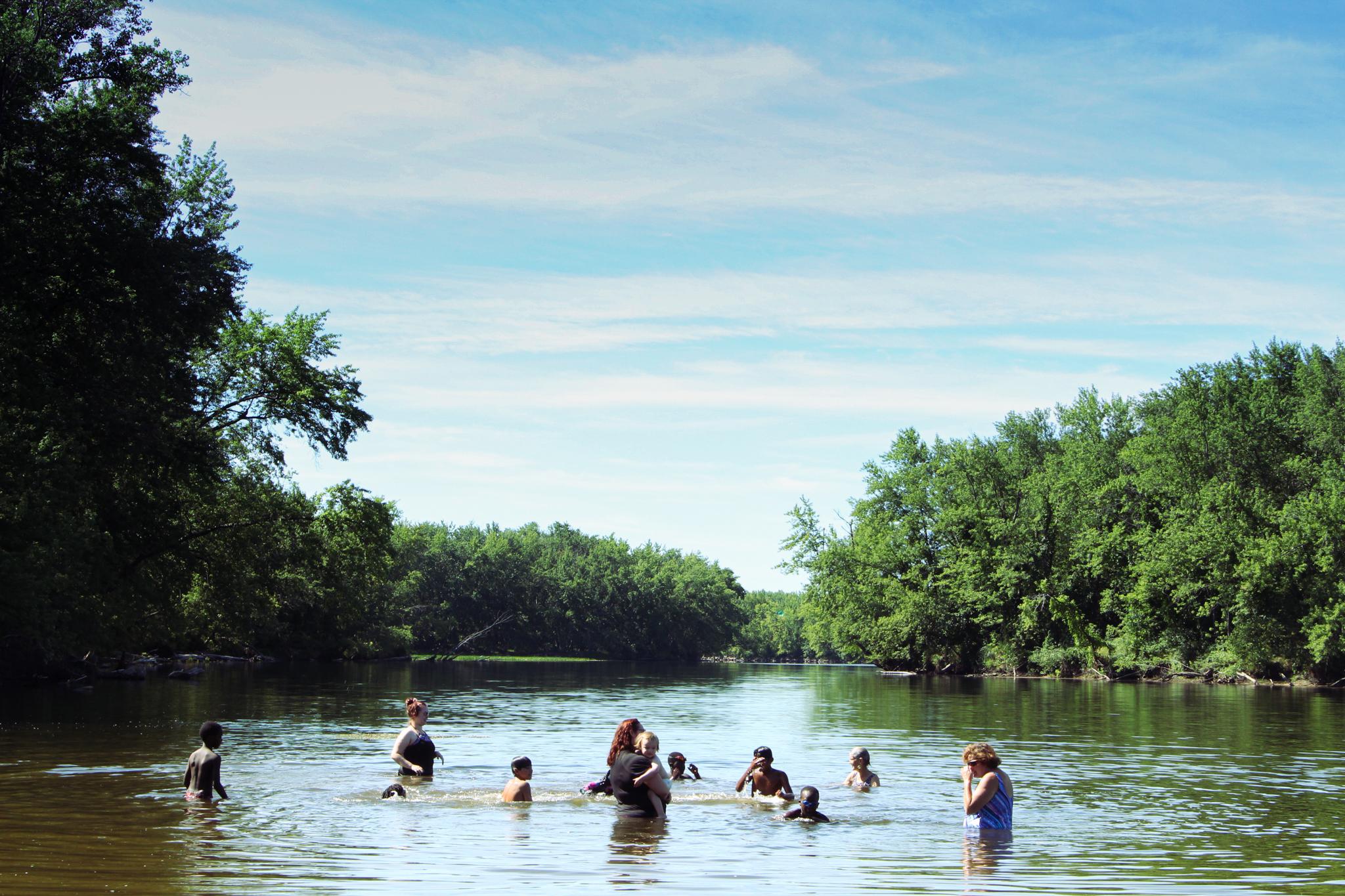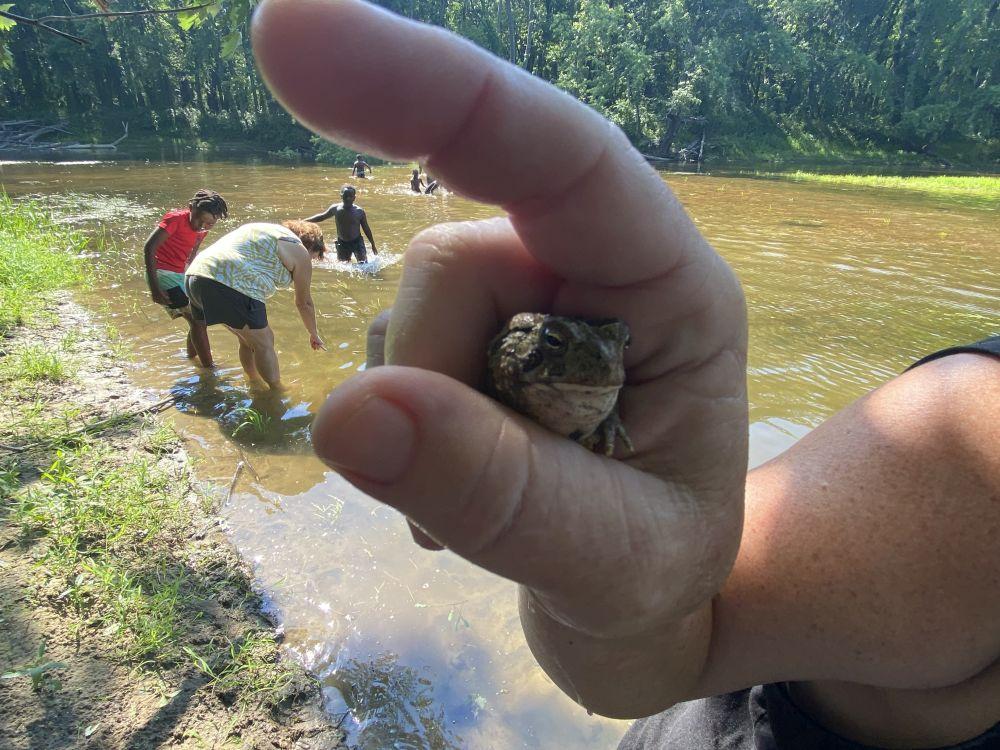Cool tradition for a HOT day on the Merrimack River

Students pose for a group photo in the shade of the silver maple forest. (Photo: Dave Anderson)
A tradition continued when English Language Learners students from nearby Broken Ground School, who are enrolled in summer camp, returned to the Forest Society's Merrimack River Outdoor Education and Conservation Area to explore the shallows in search of insects, tadpoles, frogs, toads and fish. The mid-summer heat makes a morning of wading in the shallows a perfect opportunity for free unstructured play in nature — and a powerful reminder of the formative experiences that help shape all adults.
Free play. Not structured. Get to the river and wade in — with a bucket or a net. Or sit on the sandy bank in the shade of the silver maples to watch and to listen.

Thirteen international students and four adult school camp leaders were joined by two Forest Society education staffers and a family member. Dave Anderson and Sarah Kern joined teacher Ellen Kenny and her colleagues to facilitate the experience.
As a seasoned educator with 30 years of teaching experience here in Concord and elsewhere on Forest Society conservationlLand, I am reminded of several powerful lessons — for ME — not necessarily the students. I see again how these students innately seek out creatures— paricularly freshwater mussel shells or tiny fish or juvenile toads hopping and feeding on insects along the exposed wet sand of a sandbar of grasses and young silver maple seedlings. A forest that will lie submerged during high water at other times of the year.
Students disperse and find — each according to their own particular interests — a place to search out small aquatic creatures and to splash and play to cool off in 90-degree heat.
Excited shouts of "Hey! I found one!" and desire to share with one another. Then "Look at this! - Hey Mr. Dave - I think I found a..."
... an animal scat — or a feather — a dragonfly or a whirling water beetle. Sarah Kern explains to a small group of one or two students at a time that some aquatic beetles can ride a small bubble of air. I heard Sarah explain along the trail through the pine plantation forest: "Yes — its called carbon dioxide, we need it to breathe — but you can't see it - it's invisible"

At the river, catching tiny fish with dip nets is difficult — unless a few kids herd the fish toward another holding a net. This is how some waterfowl — Merganser ducks — learn to push fish toward other ducks waiting to catch them. These students from Nepal, Africans, Brazil, and Afghanistan are a tribe of Concord kids playing in their local river — the Merrimack River.
Children instinctively jump into the chase and catching. And then admiring each discovery with natural curiosity.

"Awww- I wanna see it! What is it? Can I hold it?"
I get the sense of a kind of genetic memory over generations of children learning about their wild surroundings by catching and discovering as a precursor to obtaining food as adults. As children, we all once had the same natural and instinctive curiosity about nature so close to the surface when allowed to free play outdoors — and to discover at our own pace and interest levels. Without being interrupted by teaching stations or formal instruction.
Not one student wanted to leave the river or even get to the bank for snack. I threatened to eat up all the cookies if they didn't join us and then we'd again need to run to catch the bus back to Broken Ground School.
Watching the students and listening to the excitement in their voices, I figure, "These few precious hours of summer fun wading in the river are probably the very 'highest and best use' of this piece of conservation land." The lower 75 acres along the Merrimack river bank at the 103-acre Merrimack River Floodplain and adjacent Concord Conservation Center resounds with the echos of laughter and excited shouts of discoveries — hopefully to last a lifetime of memories.
